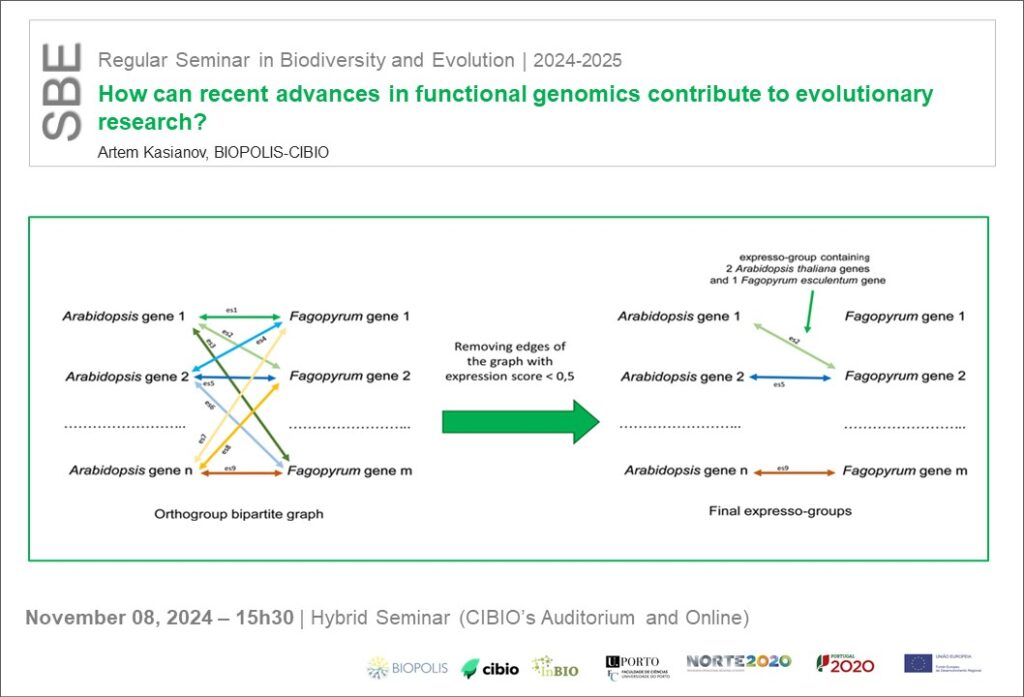How can recent advances in functional genomics contribute to evolutionary research?
Artem Kasianov, BIOPOLIS-CIBIO
November 08, 2024 | 15h30 | CIBIO’s Auditorium and Online (https://videoconf-colibri.zoom.us/j/99797933081)

Over the last two decades, advances in high-throughput sequencing technologies have dramatically increased the number of available whole-genome sequences across diverse species and expanding opportunities for population-level genomic studies. This wealth of genomic data has proven invaluable for evolutionary research. At the same time, the functional genomics field has surged forward with innovative sequencing-based tools—such as RNA-seq, ChIP-seq, Hi-C, and bisulfite sequencing—that offer insights into the functional roles of genes, regulatory elements, and other genomic features. These datasets create an additional layer of information that complements genomic sequences, providing new dimensions to evolutionary investigations. Here, I present two methodologies for utilizing these enhanced datasets in evolutionary studies to uncover findings at both macroevolutionary and microevolutionary scales. The first approach underpins the development of the tool ISSEML, which facilitates interspecies comparisons of gene expression profiles and helps explore neofunctionalization and subfunctionalization events during speciation. The second one emphasizes using pathway data as a framework for identifying positive selection events across evolutionary lineages.
More information here